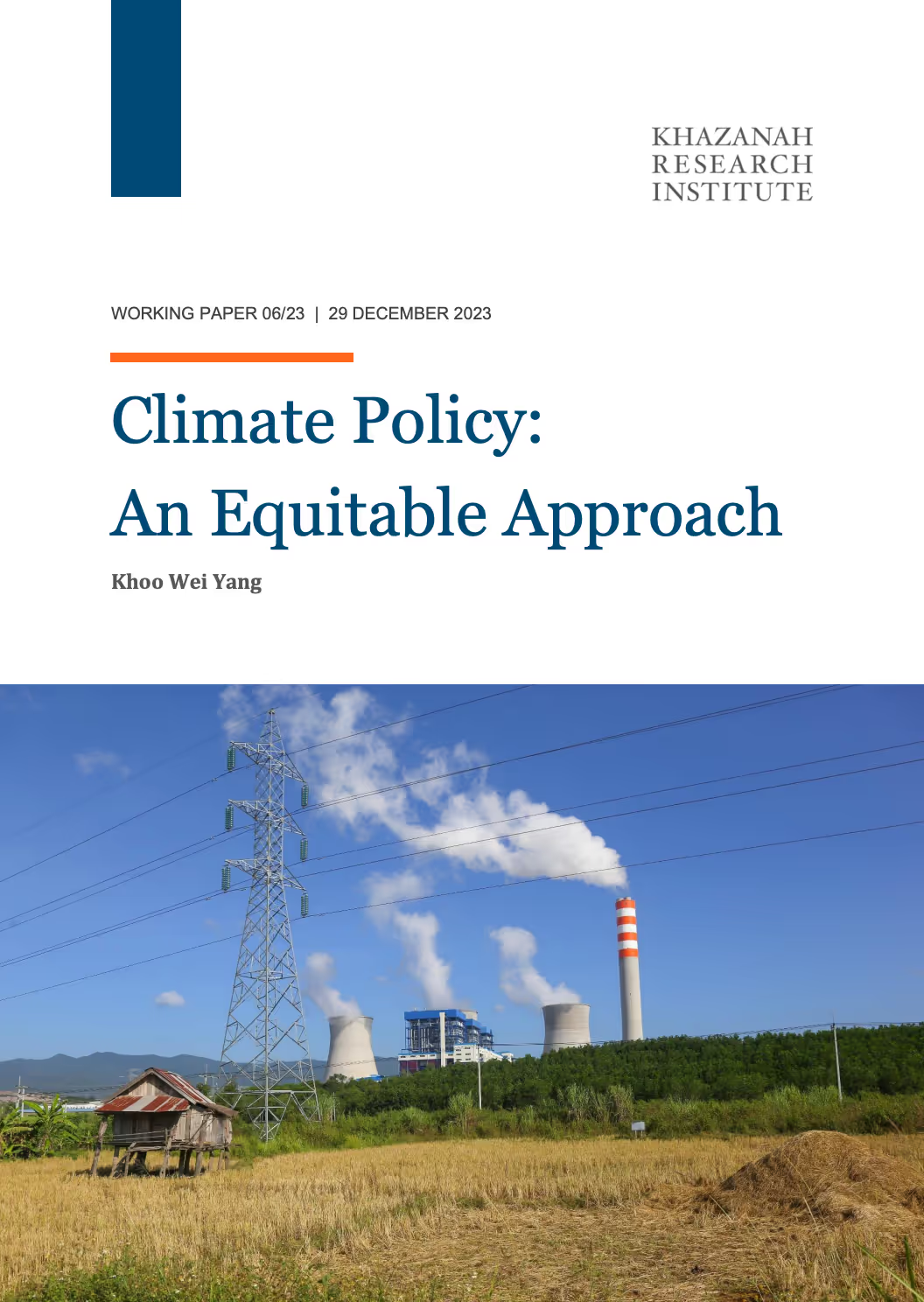
The challenge of climate change for national governments lies not only in driving climate action but also in determining an equitable share of climate action in a multilateral context. This paper argues that an equity-informed approach can help governments of developing countries navigate the twin prerogatives of solving for climate change and achieving development, thus achieving climate-resilient development.This paper explores: (1) the equity implications of climate burden sharing; (2) the equity risks imposed by climate mitigation as implied in low carbon transition; and, (3) enabling conditions as implied in formal climate legislation. This paper uses the Climate Equity Reference Framework for the analysis of climate burden sharing. This paper also compares ten developed and developing countries’ Long-term Low-Emission Development Strategies and National Climate Change Acts to examine the equity implications. This paper finds that:
- Indonesia and Thailand have set mitigation goals that are higher than or appropriate to their fair share, whereas the United States’ goals are far lower than their fair share. The United States ought to significantly ramp up mitigation actions. Malaysia’s climate goal remains slightly above its fair share if we consider carbon sink removals, Malaysia should pursue balanced mitigation action subject to fair burden sharing according to equity principles.
- Emerging risks of low carbon transition are distributed unevenly among developed and developing countries. Transition potentially affects developing countries’ source of trade, fiscal space, and employment in key productive industries. Malaysia is exposed to distributional risks associated with transition.
- Formal institutions of climate legislation provide an avenue to establish institutional arrangements that deepen cross-agency coordination, dedicated oversight bodies for goal management, and financing mechanisms for climate actions. Malaysia can learn from developed and developing country experiences to design a legal framework that ensures balanced mitigation and adaptation outcomes.
Malaysia, as a developing country with middle-to-low climate change responsibility, faces the twin challenge of achieving development under climate constraints and potential macroeconomic and technology risks.
In order to achieve climate-resilient development, the country must conserve and maintain its level of carbon sinks and removals, and allocate more emphasis to climate adaptation action, ideally achieving a balance between mitigation and adaptation, and overall sustainable development goals.















